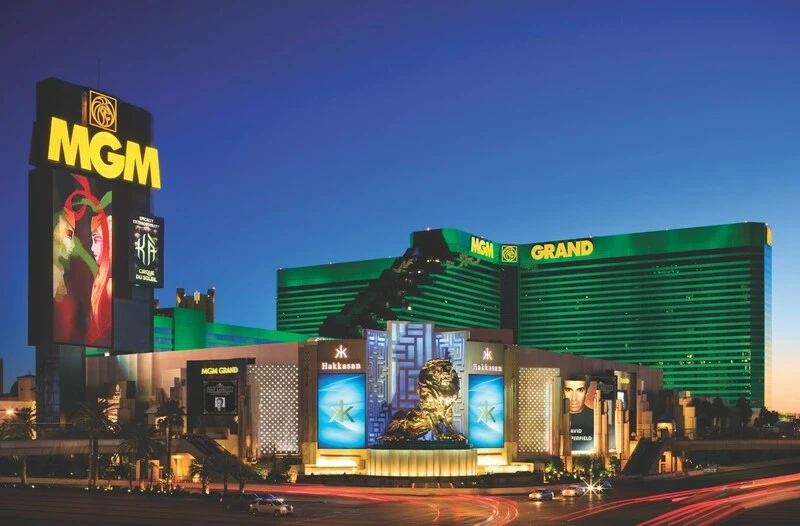MGM Resorts “went to hell and back” due to Q3 cyberattack

The attack took place towards the end of Q3 on 11 September, with MGM forced to shut down certain systems. MGM has already revealed the attack had a negative adjusted property EBITDAR impact of approximately $100.0m.
The operator “went to hell and back” as a result of this upheaval CEO Bill Hornbuckle said, but ultimately reported record results for the quarter. This was mainly driven by the success of MGM China, which offset declines in the US.
MGM also made inroads into the UK market in Q3 with the launch of BetMGM. Rolled out by its online arm LeoVegas, BetMGM is now online with igaming and sports betting in the UK market.
Hornbuckle: MGM showed “incredible resilience and determination”
This, coupled with growth in China and hopes of an upturn in Las Vegas and across its Regional business, left CEO Hornbuckle pleased with the Q3 performance.
“We started the quarter with great momentum across our businesses,” Hornbuckle said. “While we were faced with a difficult cybersecurity issue in September, our employees rose to the occasion with incredible resilience and determination. With the incident now behind us, we are a stronger company having been through the challenge.
“Going forward we have much to be optimistic about with Formula 1’s inaugural Las Vegas race next week and early next year the debut of the MGM Collection with Marriott Bonvoy followed by the Super Bowl.
“Beyond these catalysts, MGM China is performing exceptionally well, and we have a pipeline of development opportunities including New York and Japan alongside the growth and development of our international digital business and BetMGM.”
Casino growth offsets declines elsewhere in Q3
Breaking down Q3 performance, casino was by far the primary source of revenue for MGM. Revenue from these activities climbed 45.8% to $2.05bn.
Rooms revenue remained level at $827.1m, despite the cyberattack impact, but revenue was lower elsewhere. Food and beverage revenue dipped 3.4% to $698.3m and entertainment, retail and other revenue fell 13.8% to $385.7m.
MGM also noted $11.6m worth of reimbursed costs for the quarter.
Removal of Covid-19 restrictions drives MGM China growth
As for segmental performance, the Las Vegas Operations business drew the most revenue at $2.10bn, although this was 8.7% lower year-on-year. MGM says this was partly due to the cyberattack, while it was also impacted by the sale of its Mirage property in December 2022.
Turning to the Regional Operations segment, revenue also slipped 5.0% to $925.0m. MGM again pointed to the cyberattack as one of the core reasons for the decline. It also noted the impact of Gold Strike Tunica sale back in February.
In contrast, revenue from MGM China rocketed 834.5% to $813.0m. This, MGM says, was the result of the removal of all remaining pandemic-related travel and entry restrictions in the region. MGM also noted the figure was approximately 10.0% higher than Q3 of 2019, prior to the outbreak of Covid-19.
MGM in the black for Q3
Looking at spending, operating costs were 18.5% lower at $3.63bn, mainly due to lower depreciation and amortisation. MGM also noted $22.1m in profit from unconsolidated affiliates and a further $145.6m in net non-operating costs.
This left a pre-tax profit of $224.3m, in contrast to a loss of $1.19bn last year. MGM paid $12.4m in income tax and also took off $50.8m in loss from non-controlling interests.
As such, MGM ended Q3 with a net profit of $161.1m, compared to last year’s $576.8m loss. In addition, adjusted EBITDAR (earnings before interest, taxes, depreciation, amortisation and rent costs) reached $1.15bn, with no prior year comparables available.
Net profit down in year-to-date
As for MGM’s performance in the year-to-date, revenue in the nine months to 30 September hit $11.79bn. This is 23.6% ahead of the previous year.
Casino revenue increased 40.6% to $5.88bn, while rooms revenue was 15.3% higher for the period at $2.49bn. Food and beverage revenue increased by 14.3% to $2.16bn although entertainment, retail and other revenue edged down 3.9% to $1.22bn. MGM also noted $33.8m in reimbursed costs.
On the subject of spending, operating expenses were 28.5% higher at $10.24bn. Loss from unconsolidated affiliates amounted to $68.7m and net non-operating costs were $319.5m.
Pre-tax profit amounted to $1.15bn, up 22.9% year-on-year. MGM paid $217.4m in tax and also accounted for a $106.6m loss from non-controlling interests. Last year, it was able to draw a $662.3m from these interests.
As a results, net profit for the period was 30.3% lower at $829.7m. Adjusted EBITDAR hit $3.39bn, again with no prior year comparables.
“Candidly, this quarter we went to hell and back with what we all went through with cybertech,” Hornbuckle said. “I’m proud of what we’ve accomplished, put ourselves back on track.”
